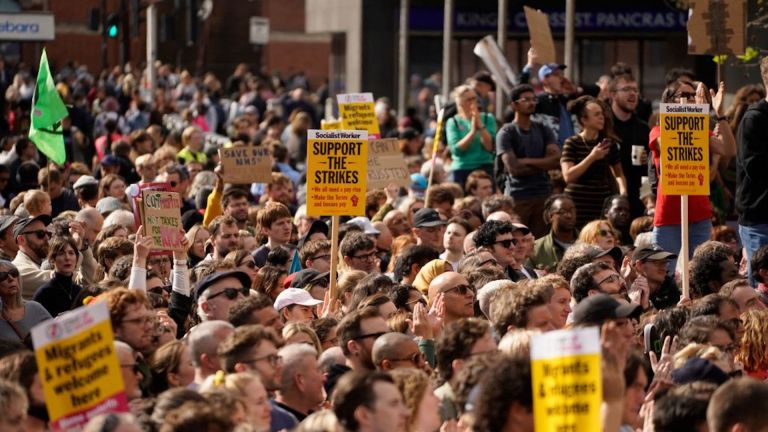Campaigners dressed as undertakers and mourners protested at Westminster today, calling on the government to help people struggling with funeral costs.
The mock funeral procession through Parliament Square was staged to highlight the growing problem of funeral poverty faced by many families in mourning.
Emergency assistance provided by the state was capped at £700 back in 2003, far below the cost of the most basic funeral.
The latest data shows the amount of debt accrued to pay for funerals now sits at a record high of £160 million, up just over £10 million from last year. The average funeral now costs £3,784.
Leading charities, including Quaker Social Action’s Fair Funerals campaign have sent a letter to Chancellor Philip Hammond making the case for a raise in the state’s funeral fund in line with inflation (then uprated annually in line with the retail price index).
The funeral fund currently only covers 40% of the costs of a basic, no-frills funeral.










